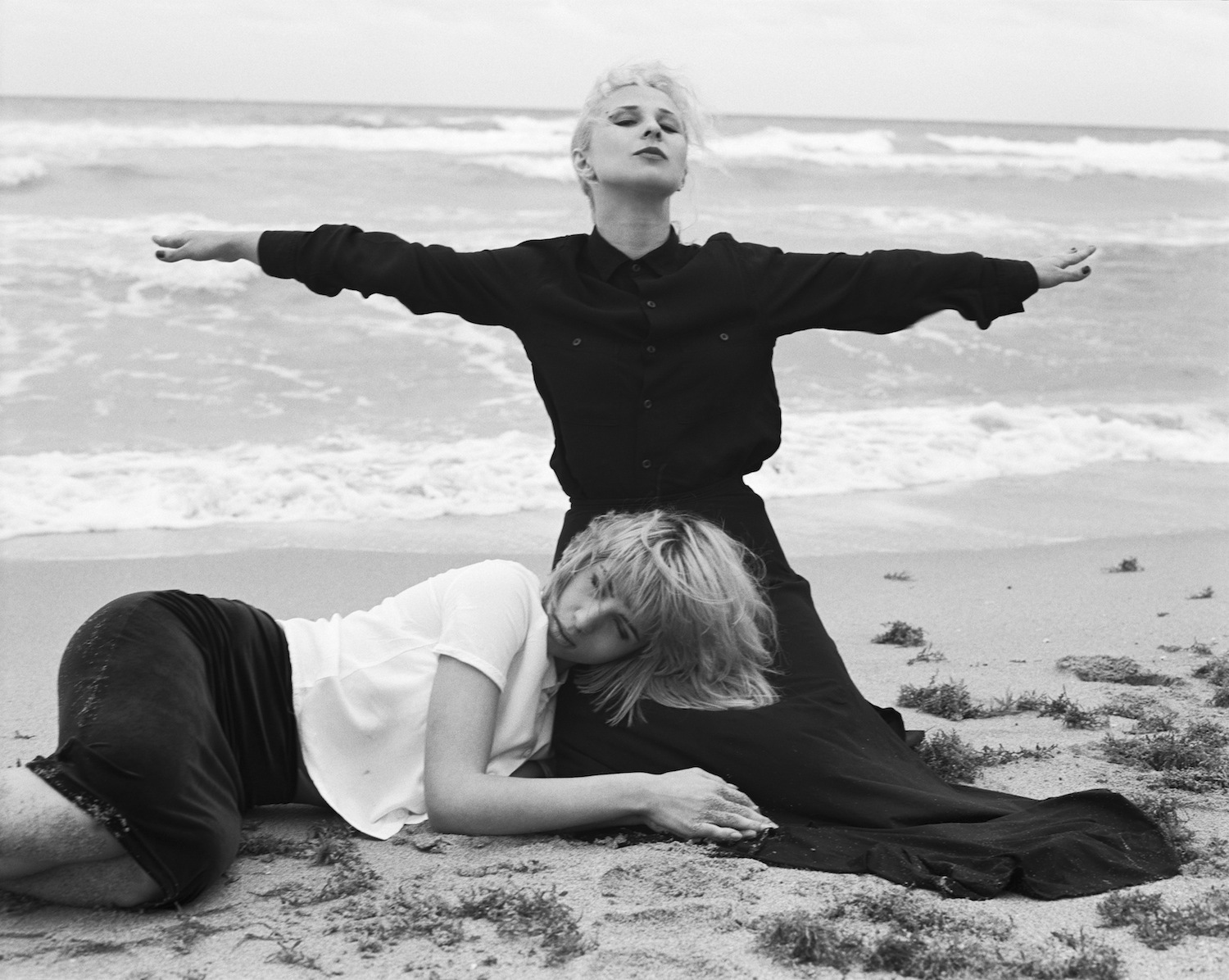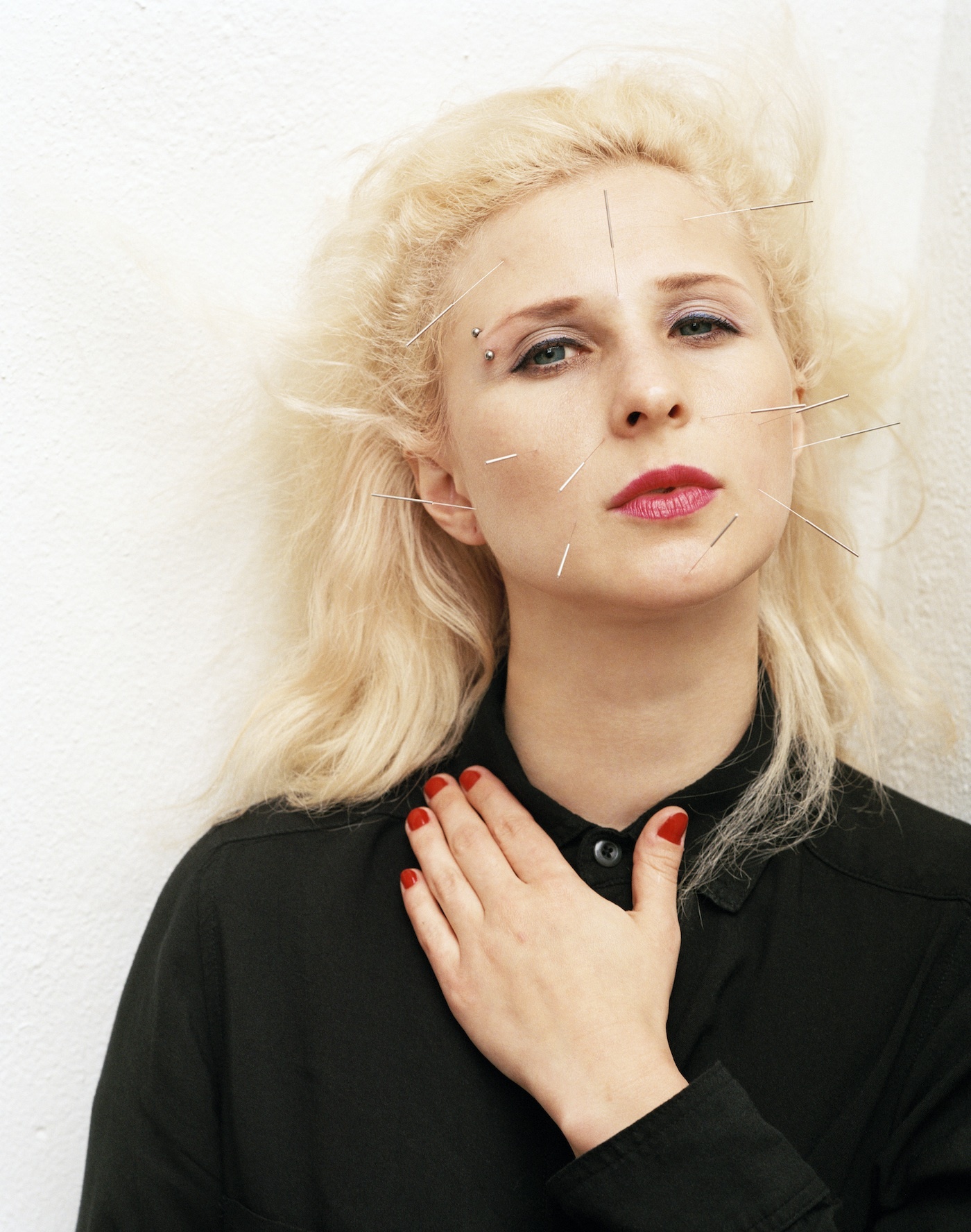
“I’m like fucking Cinderella,” says Masha of Pussy Riot, as her shoe falls off on the beach in Miami. Along with Nadya, she has come to Florida to give a talk for the Clinton Global Initiative. This is no fairy tale, but there is something extraordinary about two young women going from hunger strikes to selfies with Bill Clinton. Nadya and Masha pass cigarettes back and forth as they finish each other’s sentences, which often end in wild laughter. Gone are the translators they depended on in earlier interviews; they now use their own broken yet effective English. In the three years since Pussy Riot sang the punk prayer heard round the world, the movement’s poster girls have grown up. But not too much.
You know the story by now (or should): Nadya (Nadezhda Tolokonnikova) and Masha (Maria Alyokhina), as well as Yekaterina Samutsevich, were arrested for “hooliganism” following their performance protesting Putin’s reelection at Moscow’s Cathedral of Christ the Savior in 2012. Since they first leapt onto the world stage in their brightly colored balaclavas singing “Shit, shit, the Lord’s shit,” Nadya and Masha have served 21 months in prison, toured the world advocating for prisoners’ rights, and were beaten with horsewhips by Cossacks at the 2014 Sochi Winter Olympics following a performance. They’ve become famed feminist icons, gaining the admiration of Madonna, Kathleen Hanna and a whole new generation of riot grrrls. Although, Nadya says, “We don’t believe that we are stars.”
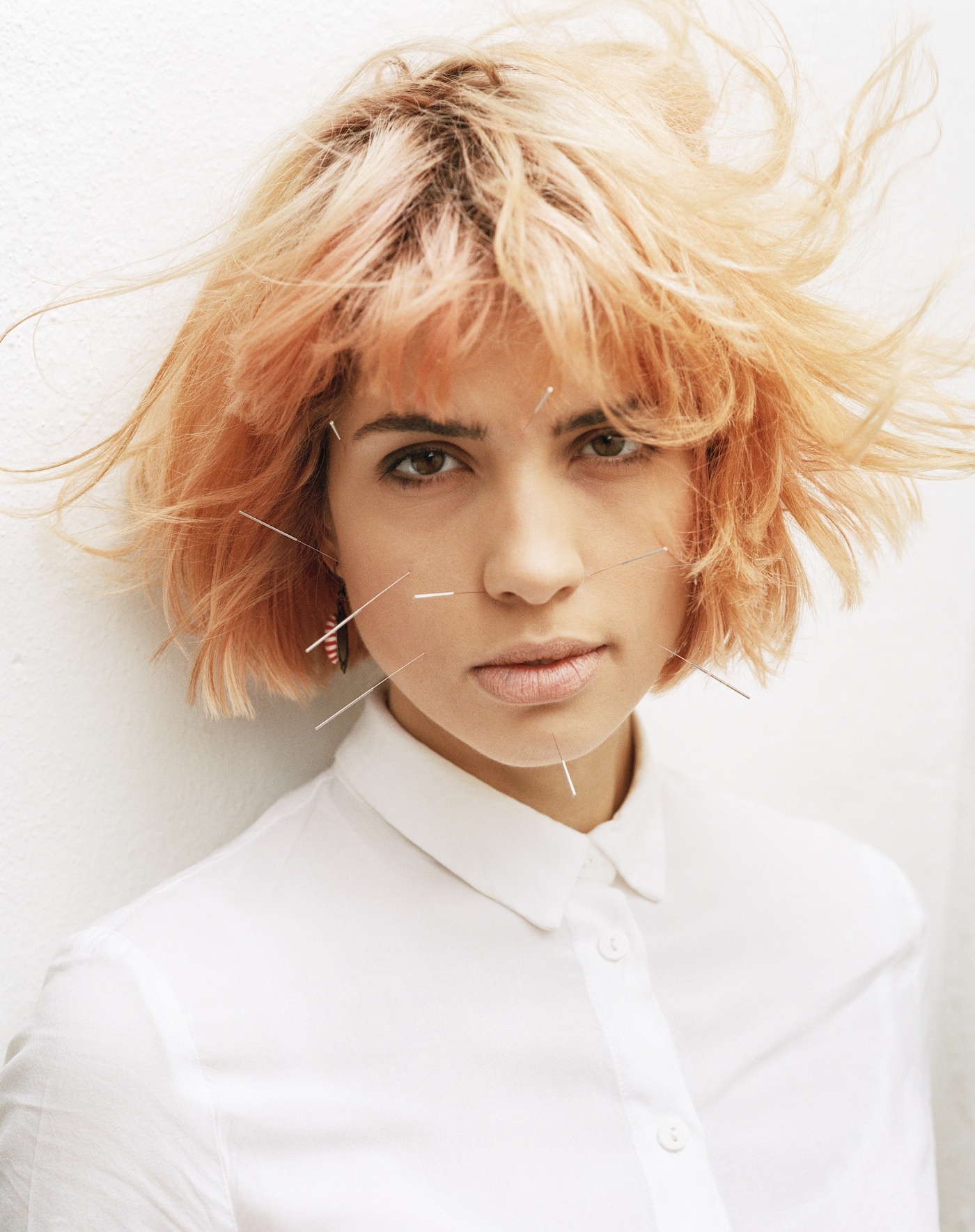
All that by their mid-twenties. As the hype fades a bit, perhaps Pussy Riot’s most important work is ahead of them. The political climate is tense, with the ongoing conflict in Ukraine, and a recent law forbidding gay “propaganda”. Pussy Riot – an evolving group of 15 to 20 artists – have emerged as an increasingly international force, concerned with political injustice of all kinds. The week we speak, the band have just released their first English-language song, I Can’t Breathe, a reference to Eric Garner’s death by police in Staten Island.
Featuring Nick Zinner and Richard Hell, the song was recorded in New York this past December. Its video shows Nadya and Masha being buried alive in Russian riot police uniforms, underscoring the connection between oppression in Russia and the States. Originally in New York to record a Ukraine-focused anti-war song, the duo switched gears after attending demonstrations protesting the Garner verdict. “In Russia we have the very sad situation where government just stops all the demonstrations,” says Masha. “So we were inspired by you. And we decided that this ‘I Can’t Breathe’ slogan is ours and we feel it. It’s like when you feel that you cannot breathe in your country.”
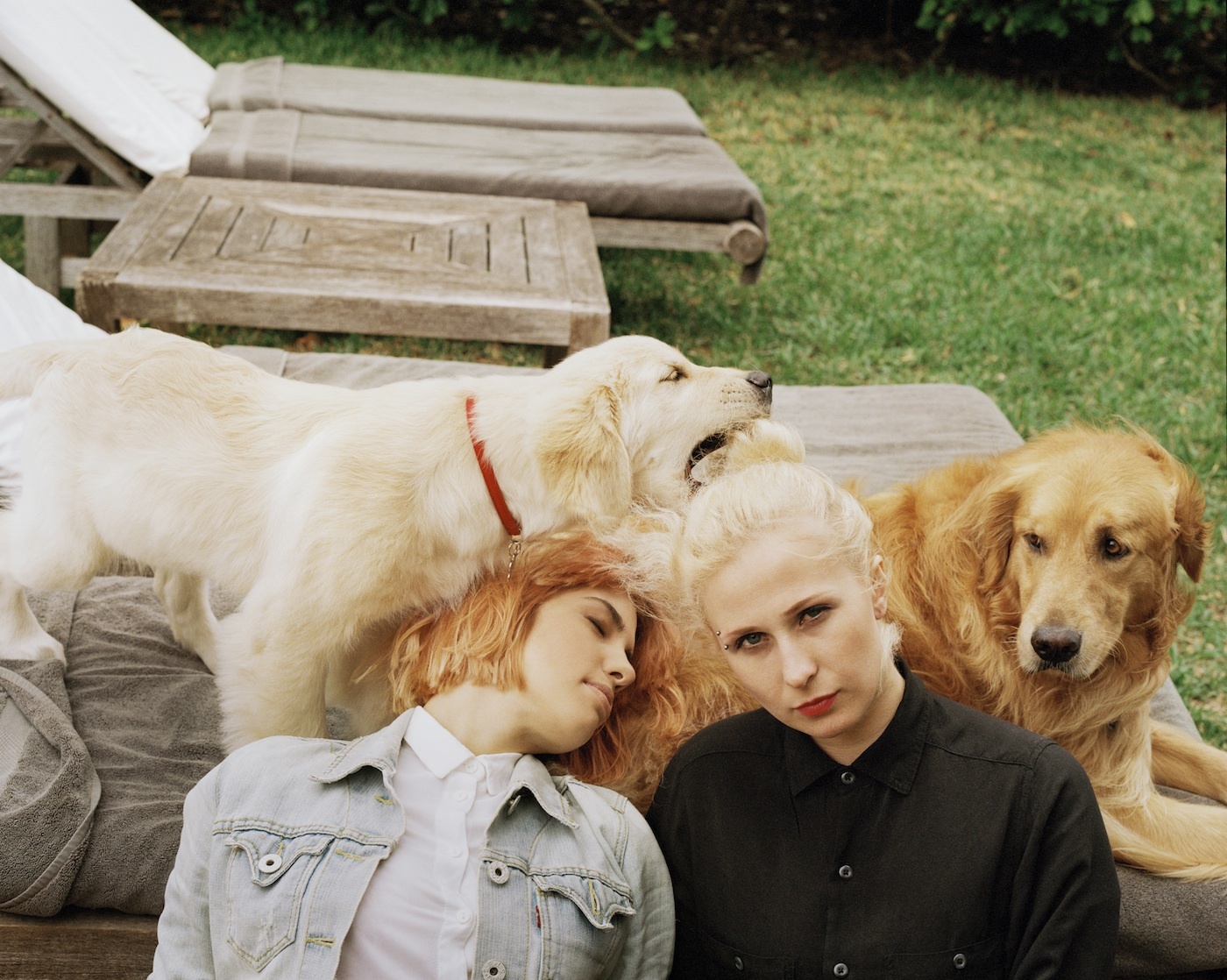
Nadya and Masha see a common apathy between young creative people in both Russia and the States. “A lot of people don’t feel a connection between politics and what they are doing,” says Nadya. “It was very strange for us, we saw a lot of people who supported us, but they don’t support political action in their own country or even in their own city.” They were surprised, for example, at the lack of support for 2014 New York gubernatorial candidate Zephyr Teachout, whom they admire for her anti-corruption work. “In Russia we have this similar situation,” says Nadya. “We have a lot of talented people here, but they don’t want to be in touch with the political situation. They think that it’s a very dirty place.”
For Pussy Riot, politics are inescapable. As to whether artists have a duty to engage, Nadya says, “It’s not duty, it’s reality. If you are not thinking about politics, politics will think about you. And if you think that you are not involved in a political situation, actually you are.” They believe wholeheartedly in the power of art to affect political change, pointing to Ai Weiwei as a guiding example. “He draws another face of China by himself,” says Masha.

Back to that wild laughter. Pussy Riot are known for their deeply ingrained sense of humor. Masha says, “It’s not possible to be serious when you’re doing social work or politics in Russia because you will become crazy. You should laugh! It’s absurd, it’s funny, it’s like Kafka. You cannot live and think that everything that you see is really serious, because you will not do anything, you will just sit on your couch and cry or watch TV. So to do something you should somehow—” “—stimulate yourself,” finishes Masha as we all crack up. In the Pussy Riot activism manual, recognize the absurdity of world politics, and then get off your butt and do something about it.
Laughter, sure, but what about fashion? It’s a bit depressing to think that young people are more receptive to Pussy Riot’s politics because of how cool they look, but image has been part of the group’s message since their first calculatedly bright performances. “We like dresses,” admits Masha. Nadya adds: “It’s the same thing as political institutions or social media, because you can pretend that you don’t want to pay attention to the dress, but the dress will pay attention to you. If you are a left-activist who hates being glamorous, even in that situation your clothes will tell something to the people around you, about you.” They could even imagine creating a clothing collection themselves: “We want to see clothes that can tell something about your political views or your social views,” says Masha. “There are some clothes like that, but it’s T-shirts, and we want to see dresses, trousers and bras – everything.” (Designers of the world, take note.)
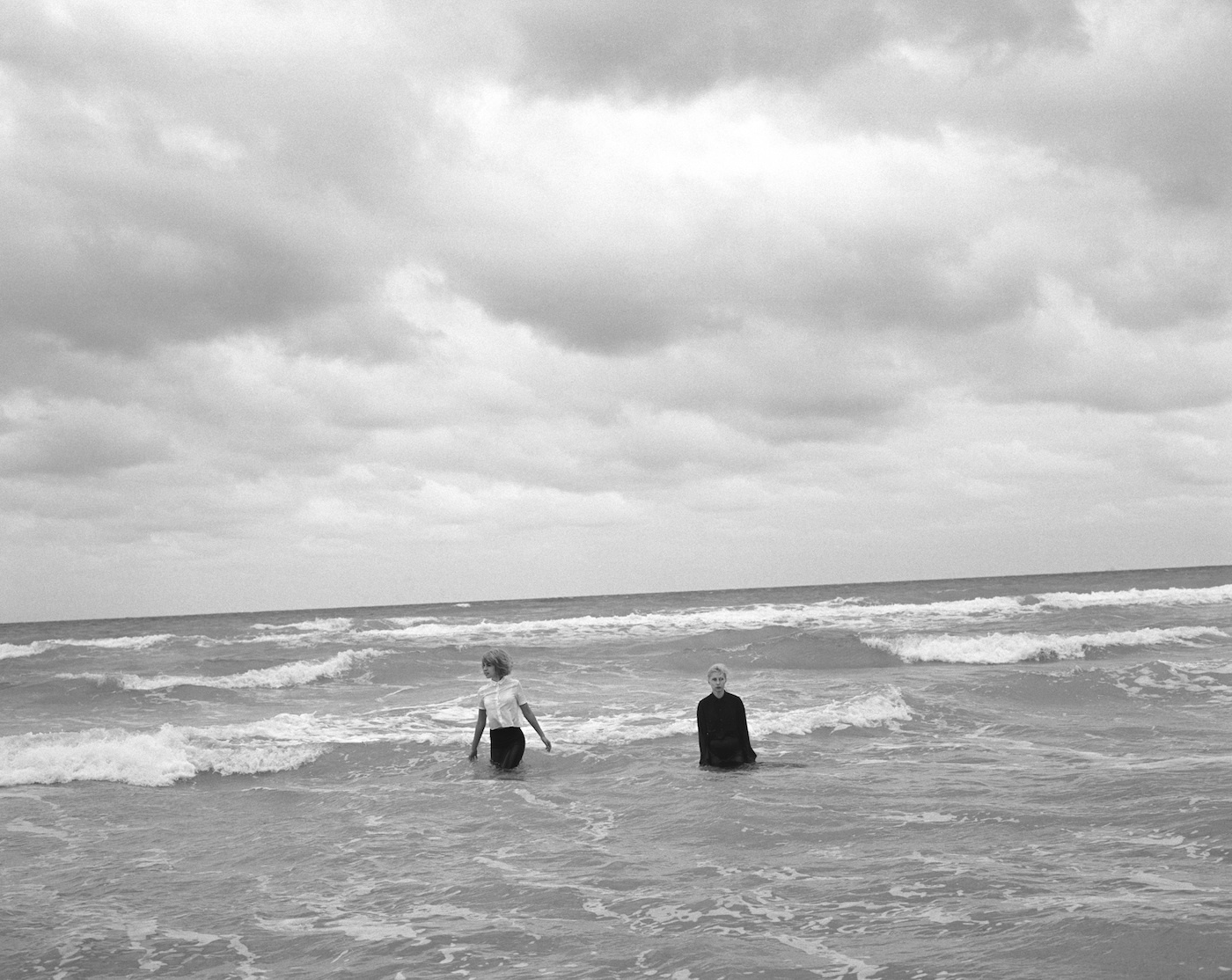
Nadya and Masha are more interested in inciting mass change than articulating a precise message. “Everybody can be Pussy Riot,” says Nadya. “You can use your voice to be Pussy Riot or you can use a form of Pussy Riot to express yourself or your political beliefs.” As for how to do that, Masha says: “By taking action, making music or videos or all of these things.” Nadya continues, “Or use your own way to be Pussy Riot. We are not people who own the idea. You can use your own ideas.”
This revolution is not televised; it is Tweeted, Facebooked and blogged. Pussy Riot is known for cutting videos of their happenings and spreading them through social media extremely quickly. “It’s part of our strategy to be masters of this political context,” says Nadya. “Because nowadays political context is built mostly on social media,” adds Masha, “Especially in the last year when they closed the independent media – social media became the number one [source] to get the information. Facebook and Twitter [are] the main media in Russia right now.”
So what’s the dream? “We want our children to live in another Russia, which has independent media with education. You know, simple things,” says Masha. “It’s not a miracle, it’s simple things that exist in another world; we’ve seen it. And we’re trying to improve, to build somehow this other Russia. We cannot do it only by ourselves so we try to…” As Masha struggles to find the words, Nadya breaks into, of all things, a song from the musical Chicago: “I simply cannot do it alone!”
How are Generation Z going to change the world? Find out here.
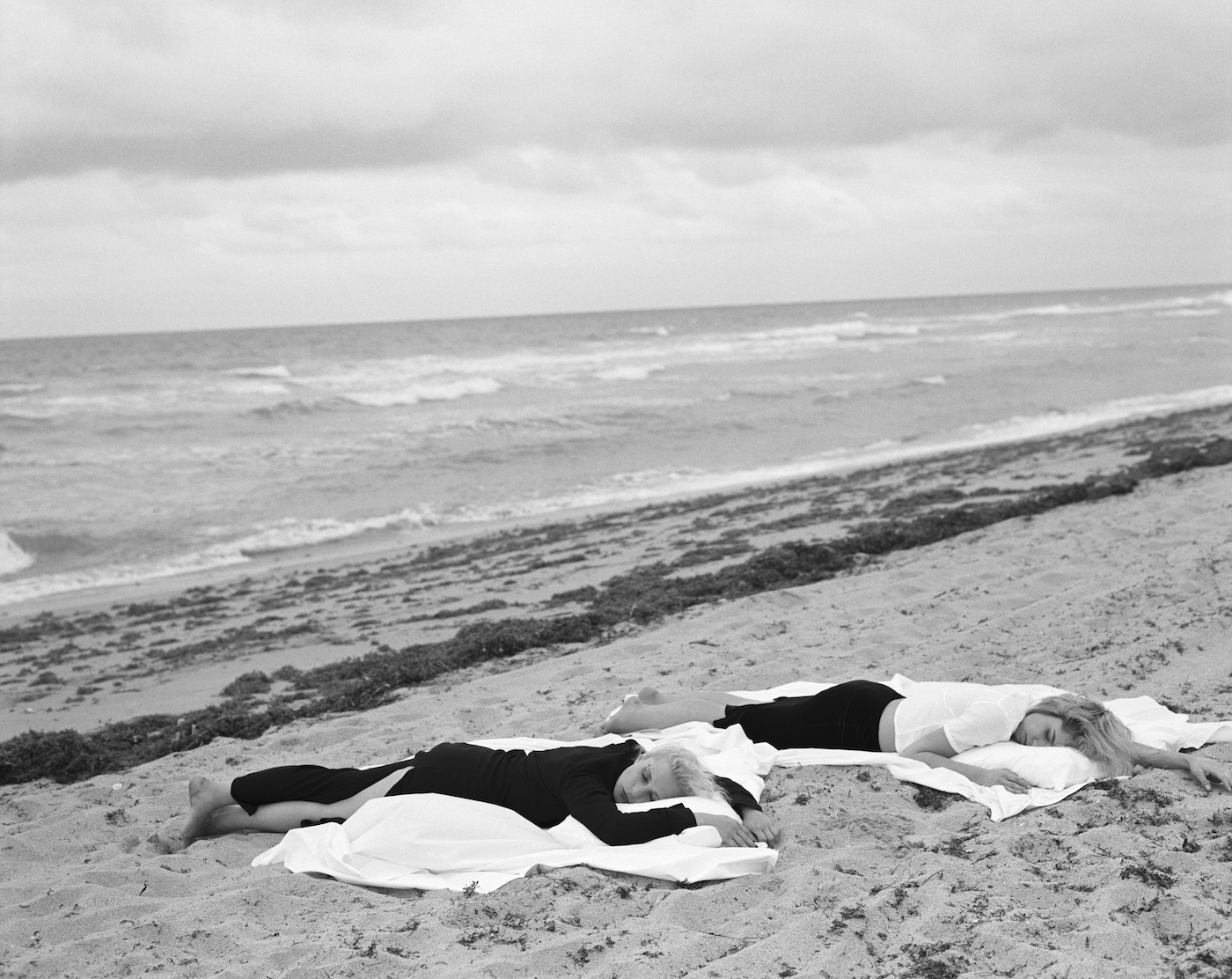
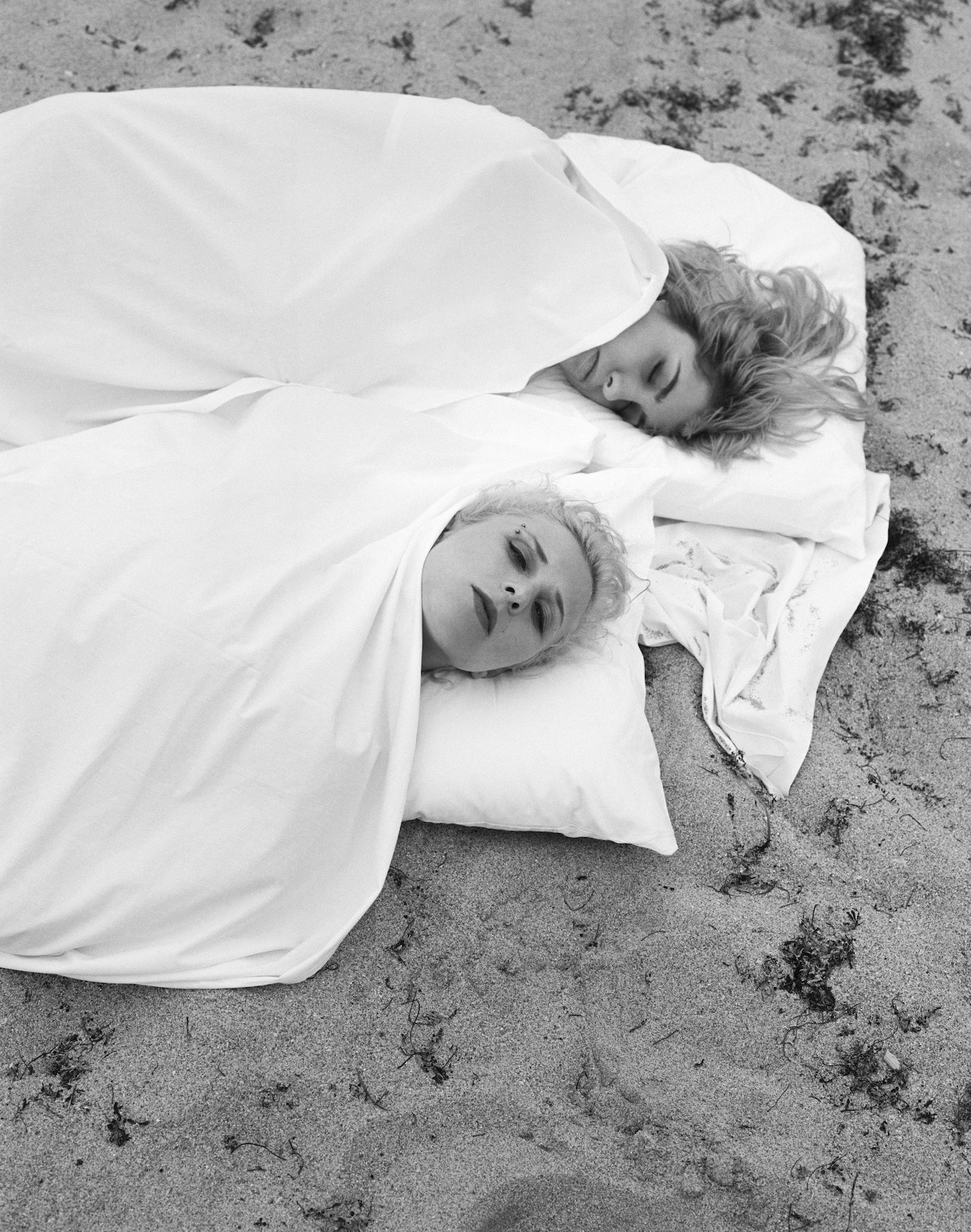
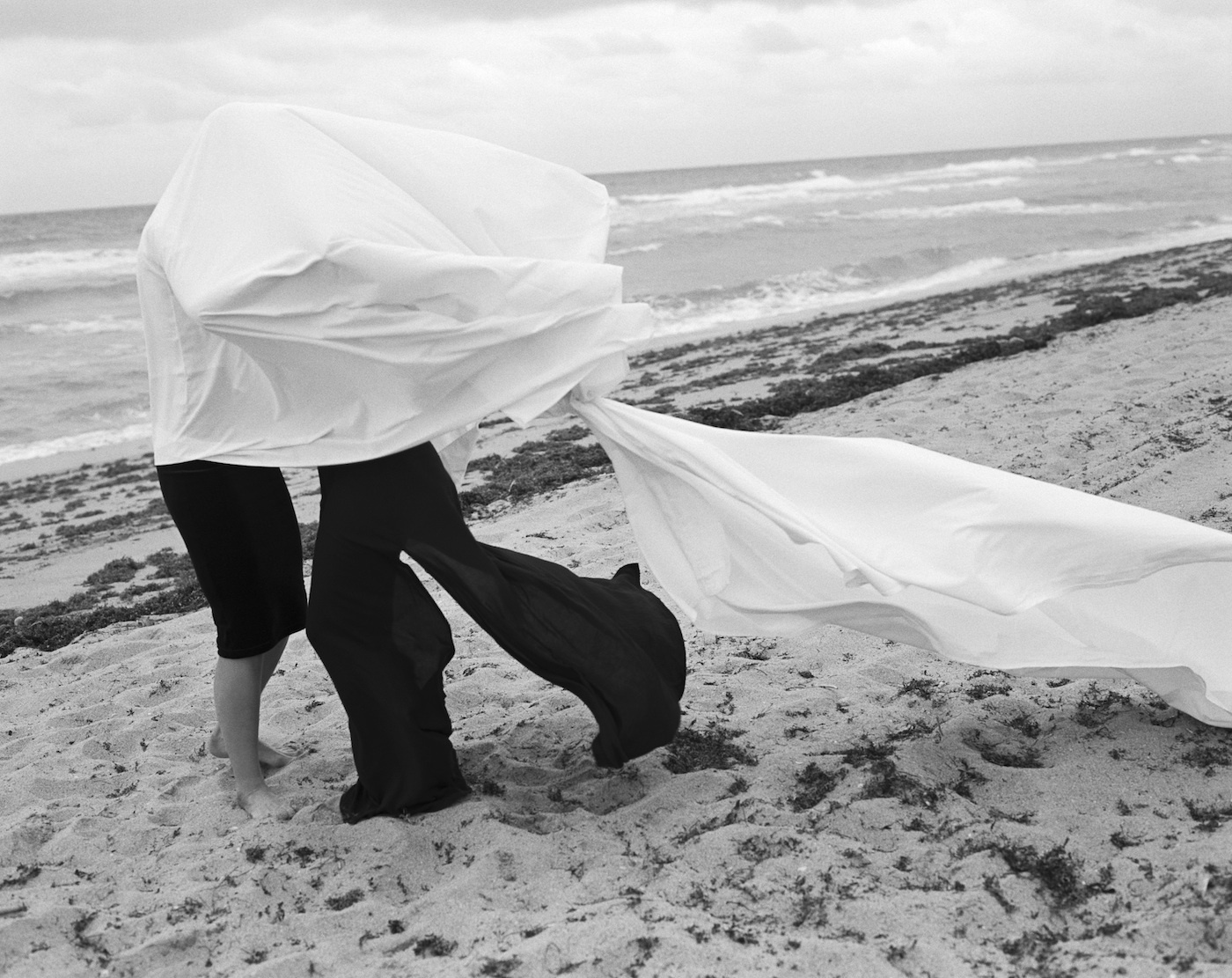
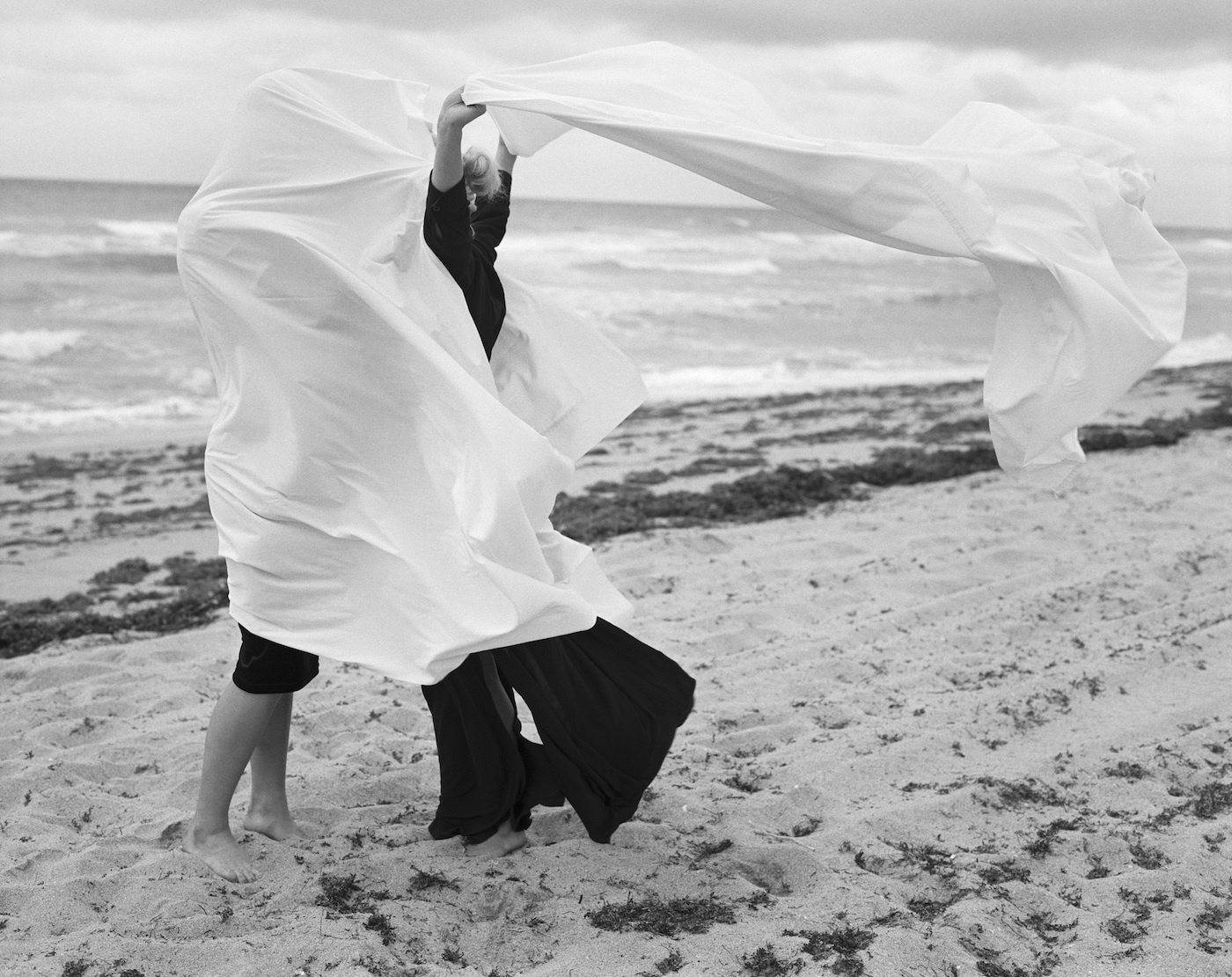
Credits
Text Rory Satran
Photography Bruce Weber
Photography assistance Chris Domurat, Ryan Brinkmann, Jeff Tautrim.
Production Little Bear Inc.
Production assistance Reynaldo Herrera.
Shot in Golden Beach, Florida.
